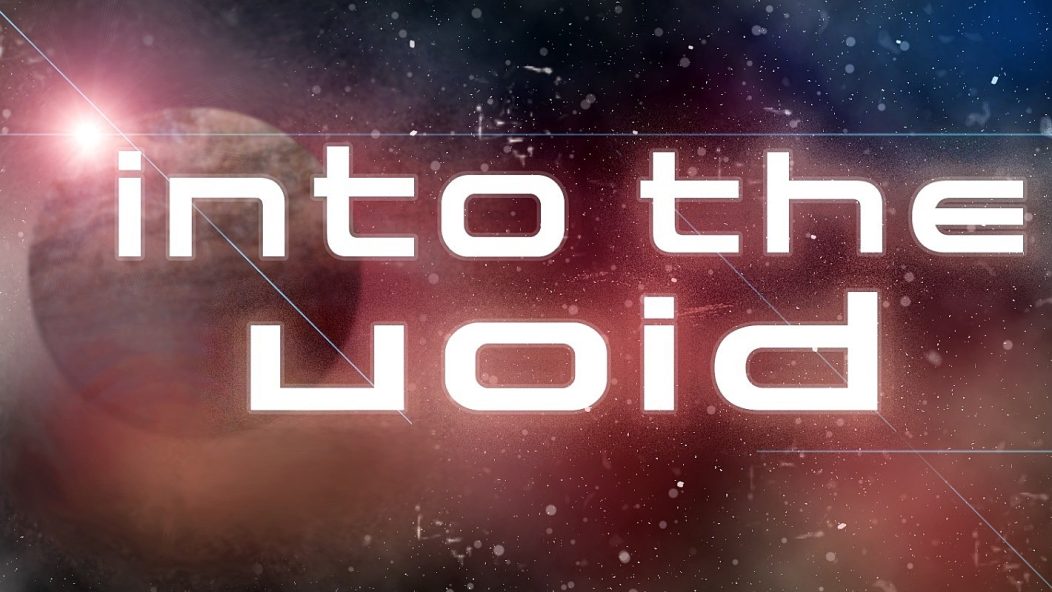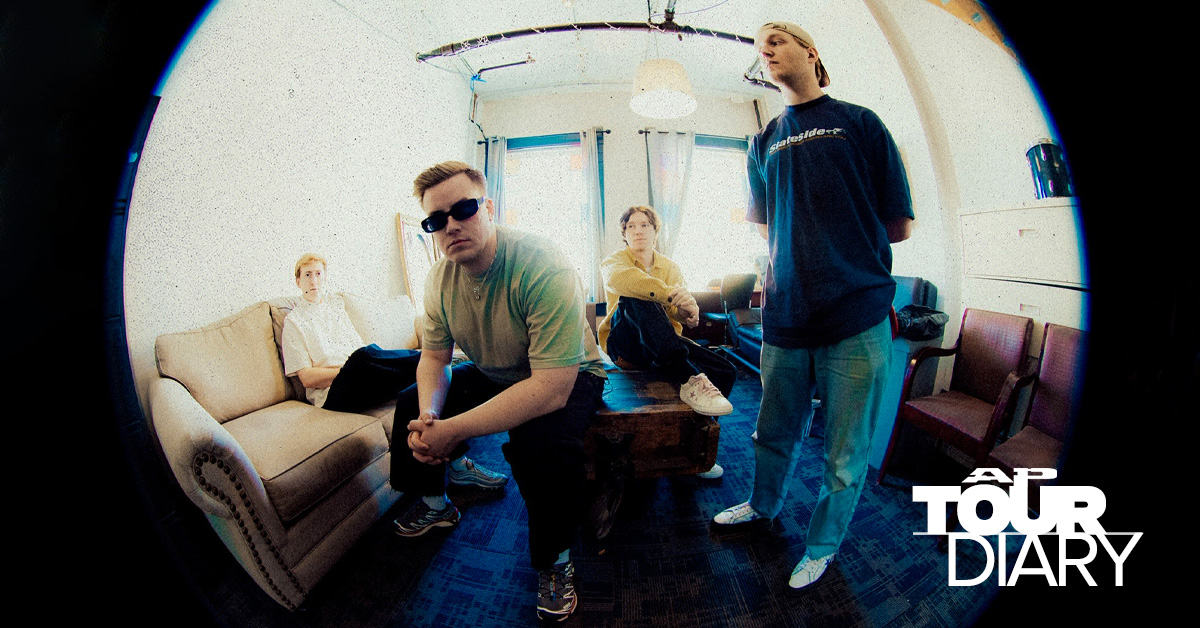
Into The Void: Metal's Newest Trip Through The Cosmos
…
In late November former Invisible Oranges Head Editor and Pyrrhon frontman Doug Moore wrote an essay for Stereogum bemoaning the age old problem of heavy metal bands eschewing social commentary in their lyrics in favor of escapist fluff. Moore’s targets in the piece should be familiar to you by now, an endless stream of vikings, demons, slasher flick violence and dragons. Metal has always been, and will likely always be, awash with this stuff. But recently metal musicians have been turning their gaze away from the depths of hell and upwards to the stars.
Metal has flirted with the cosmos throughout out its existence. Early innovators like Black Sabbath and Deep Purple both referenced outer space on songs like “Planet Caravan” or “Space Truckin”. The vastness of the void has since served as the playground of “hits the blunt once” revivalists The Sword, occult nihlists with Lovecraft hard-ons like Watain, and prog metal hams like Ayreon and Devin Townsend. But it’s hard to deny that the last few years have seen outer space go from a niche interest to a substantial part of the modern metal diet, including the top of Invisible Oranges Staff list in 2016.
But why space and why now? First it’s important to note that this recent interest isn’t unique to heavy metal. One only needs to look at Hollywood to see that the cosmos has captured the imagination of much of the creative class. Since 2013 there has been a big budget star-studded science fiction film released like clockwork in fall months. ‘Gravity’ in 2013, ‘Interstellar’ in 2014, ‘The Martian’ in 2015, and this year the double dose of ‘Passengers’ and ‘Arrival’, the latter of which, while technically not a movie about outer space, concerns itself a great deal with humanity’s place in the universe. What makes this recent trend interesting is that these films see space as a highly dangerous but optimistically clean slate, one where you can work out your grief and where the power of love, human ingenuity, and communication are enough to win the day. Not only that, but these films have, with the exception of ‘Passengers’, resonated with audiences despite being franchise unaffiliated. Clearly people have an appetite that goes beyond our particular subculture. So again, why?
Frankly, because Earth sucks. Is it really all that surprising that people would flock to a vision of space exploration that suggested that it was possible to escape the threats of global warming, intractable political quagmires, and the looming threat of nuclear war? As the situation down here gets more dire, that kind of starry-eyed hope has only gotten more potent. Soon space might be the only place. Somewhat paradoxically, ‘Arrival’ and ‘Interstellar, despite both being sentimental and hopeful films on the surface paint a dispiriting picture of humanity’s ability to actually solve its problems. In ‘Arrival’ the presence of aliens pushes the nations of earth to the edge of nuclear catastrophe that can only be prevented by the assistance of the aliens themselves. ‘Interstellar’ takes an even stranger tact, suggesting that the power of hope and science can propel us to a new home among the stars but are utterly useless in the face of climate change and economic collapse. This allows the movie to ignore the uncomfortable question of who would get to take flight and who would be groundbound (Gil-Scott Heron had a few ideas on the subject, as did Neil Blomkamp’s ‘Elysium’.) That fatalistic impression of the situation lurks underneath the optimistic veneer that seems to be pulling people in. And, as always, this dark underbelly is where heavy metal has found a home.
Blood Incantation are the current head of that gloomy household. Last year’s Starspawn was a breakout smash among the metal media, earning accolades from Deicbel, Stereogum. Given the band’s fresh take on classic death metal tropes it is likely that Blood Incantation would have been lauded with or without their cosmic trappings, but their decision to frame their music as an exploration of deep space gave Starspawn an extra dose of resonance.
…
…
Death metal, at its best, captures the horror of the unknowable. The genre’s asymmetrical rhythms, emphasis on dissonance and trademark approach to the human voice all serve as a way of disrupting any sense of normalcy. Death metal hangs at the edge of comprehension and then pivots into complete chaos. And what is a more unknowable than deep space? Starspawn capitalizes on the terror of being completely separated from the comforts of daily life. To Blood Incantation, space isn’t an opportunity to save humanity but a complete negation of humanity. Their songs are built with the uncanny anatomy of starfish, recognizably alive but removed from all familiarity. They aren’t here to affirm your optimism. They exist to melt your brain with radiation.
Mesarthim take an even bleaker view of the situation. Though their album art depicts outer space at its most majestic, their music puts that natural beauty at an unreachable remove. Humanity’s place in Mesarthim’s universe is as a speck, a voice howling imperceptibly in the dark, equally as buried as Mesarthim’s own vocals. And after all, the band’s first release is titled Isolate. There are no friendly Heptapods to help us, no magical black hole to guide us to safety, only silence. In a sense this is just an extension of black metal’s fascination with the grandeur of nature taken to its logical conclusion. If we’re insignificant compared to the mountains and forests of Scandinavia, then we’re exponentially more so compared to a distant nebula.
…
…
Both of these representations are powerful in their own right, but they aren’t particularly modern takes on the subject. Blood Incantation and Mesarthim continue extreme metal’s tradition of putting humanity in its place by establishing an existentially threat larger than any earthbound concerns. But this cosmic scale runs into the same problems that Moore broke down in his critique of metal’s escapist tendencies. We are completely helpless against the whim of space, it’s humbling and terrifying but also comforting. What really freaks us out about the horrors on earth is that we could do something about them but fail to. That proximity of hope and failure is what breeds a sense of helplessness. The extent of space’s indifference is so vast that worrying about it is pointless. We’re lint and if we get swept off the rug it won’t be because of our very human frailties. But zooming out to this degree also makes it easy to ignore the messiness of our day-to-day problems. Because of this, they don’t critique or comment on our current space obsession but only invert it.
Vattnet Viskar and Cult Of Luna don’t let us off so easily. Although both Settler and Mariner are significantly more cuddly than Starspawn, both hit much closer to home in their depiction of space exploration. Vattnet Viskar’s Settler acts as the gloomy followup to Black Sabbath’s “Into The Void” where mankind escapes the destruction of its home planet only to bring all of its flaws with them. They start their attack right at the source in “Colony” where they reveal space exploration to be nothing more than Manifest Destiny in a chrome paint job. They imagine the first explorers of the stars not as the lantern jawed Ohioans but as conquistadors declaring “This place is ours”.
…
…
Cult Of Luna, with significant aid from Julie Christmas, acknowledge the same colonialist undertones by insisting the opposite, that “we are not conquers!”. While the two differ on this particular point, both Cult Of Luna and Vattnet Viskar take a pickaxe to the arrogance of the Elon Musks of the world. On “The Wreck Of SS Needle” Christmas describes a mob breaking into the sealed enclosure of the technologically privileged and hunting them down. Christmas performs the song with teeth-clenched intensity, each line snapping at the heels of it’s target. Vattnet Viskar are equally as cruel, leaving their explorers stranded and out of their depth on “Heirs”. The final act of Settler takes into similar territory as the horror on Starspawn but by grounding that horror in humanity early on, their extreme conclusion takes on a sharper edge.
This dichotomy between realism and abstraction is a useful way to dig into heavy metal’s take on the subject, but it isn’t as a rigid of line as these examples would suggest. Mare Cognitum for example, blend the human concerns of Cult Of Luna and the inscrutable language of extreme metal. Their outer space is psychological rather than physical.
The problem that Moore describes isn’t just about metal bands using a particular set of images, but what bands take those images to mean. And after decades of use, many traditional metal topics have been completed depleted of meaning. They signal little more than an allegiance to an aesthetic. Metal’s space moment is different in that it isn’t limited to genre or scene. The vastness of space allows for each songwriter to take off in their own direction and find the corner of the universe that makes sense to them. For now, they have plenty of fuel to burn.
…








![Bad Omens announce new album CONCRETE JUNGLE [THE OST]](https://www.altpress.com/wp-content/uploads/2024/04/17/BadOmens-CROP_2024_JW_0619_Final_V1.jpg)


